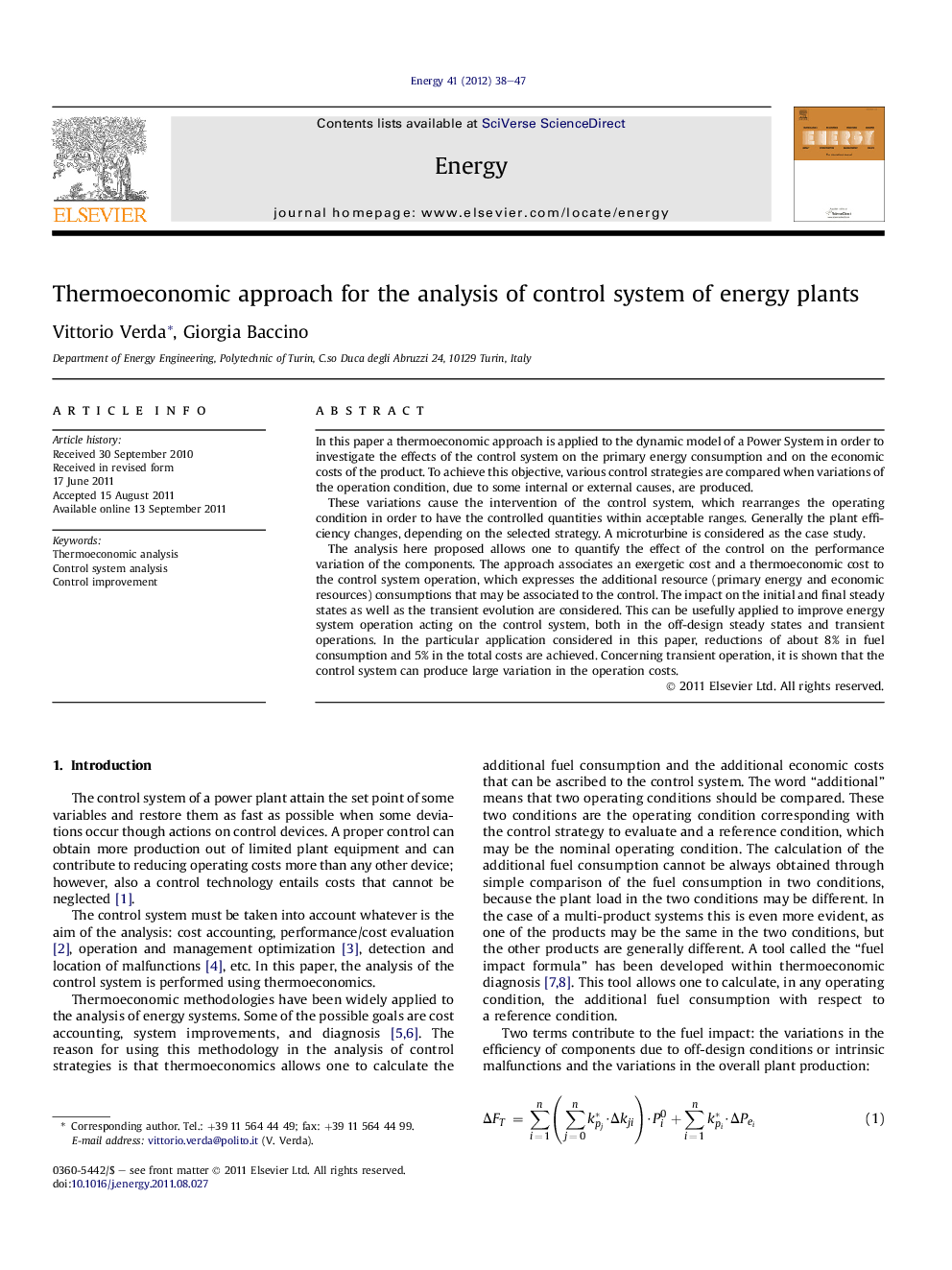| Article ID | Journal | Published Year | Pages | File Type |
|---|---|---|---|---|
| 1733476 | Energy | 2012 | 10 Pages |
In this paper a thermoeconomic approach is applied to the dynamic model of a Power System in order to investigate the effects of the control system on the primary energy consumption and on the economic costs of the product. To achieve this objective, various control strategies are compared when variations of the operation condition, due to some internal or external causes, are produced.These variations cause the intervention of the control system, which rearranges the operating condition in order to have the controlled quantities within acceptable ranges. Generally the plant efficiency changes, depending on the selected strategy. A microturbine is considered as the case study.The analysis here proposed allows one to quantify the effect of the control on the performance variation of the components. The approach associates an exergetic cost and a thermoeconomic cost to the control system operation, which expresses the additional resource (primary energy and economic resources) consumptions that may be associated to the control. The impact on the initial and final steady states as well as the transient evolution are considered. This can be usefully applied to improve energy system operation acting on the control system, both in the off-design steady states and transient operations. In the particular application considered in this paper, reductions of about 8% in fuel consumption and 5% in the total costs are achieved. Concerning transient operation, it is shown that the control system can produce large variation in the operation costs.
